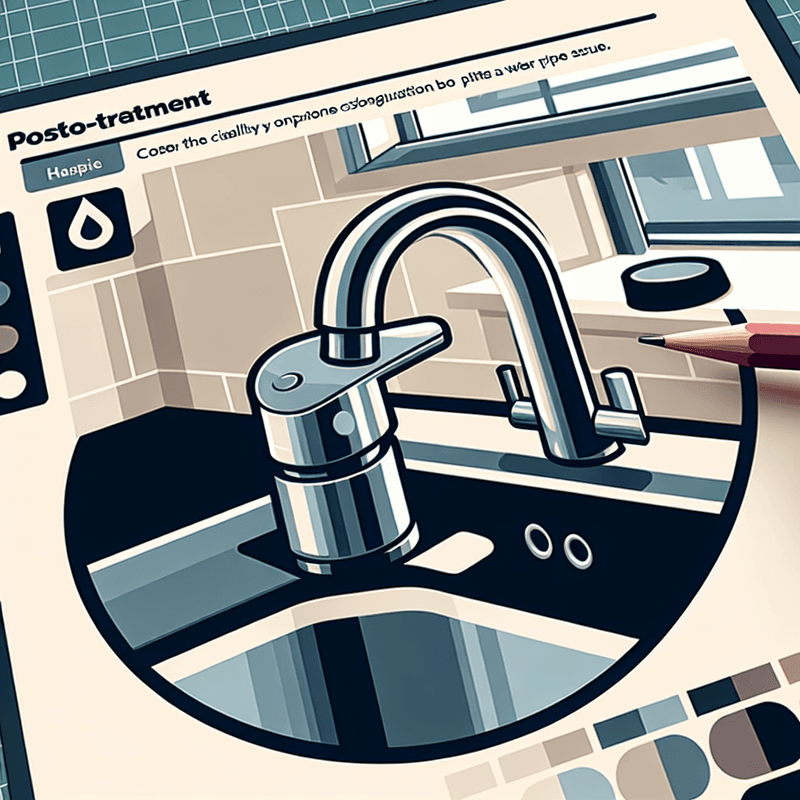If you've ever found yourself standing over a sink that refuses to drain, you know just how frustrating a blockage can be. While occasional blockages might not raise too many eyebrows, persistent problems can signal a deeper issue within your plumbing system. Understanding the root cause of these blockages, how to deal with them, and ways to prevent them in the future can save you not only time but also the hassle and potential cost of recurring plumbing issues.
Understanding Sink Blockages
Sink blockages can arise from a variety of sources. In the kitchen, common culprits include food debris, grease, and fat that solidify inside pipes. In bathrooms, the blockages often come from hair, soap scum, and other personal care products. What initially might seem a minor annoyance can quickly escalate into a full blockage affecting your household’s daily routines.
Identifying a Blockage
Recognizing the early signs of a blockage can make all the difference. Slow draining water is the first clue. If water pools and takes longer than usual to drain away, it's likely a blockage is forming. Bad odours are another tell-tale sign; as food debris or other materials start to decompose, they can produce unpleasant smells.
Immediate Actions to Take
When faced with a blockage, your immediate course of action should be to try and dislodge whatever is causing the obstruction. Plungers can be effective here, as can plumbers' snakes or augers. If you opt to use chemical drain cleaners, do so with caution, as these can sometimes damage pipes if used excessively.
Natural Solutions
For those who prefer a less aggressive approach, a mixture of baking soda and vinegar poured down the drain can help. Follow it with boiling water after a few minutes to help clear fats and oils. This method is environmentally friendly and is gentle on your pipes.
When to Use a Drain Camera
If blockages persist, it may be time to investigate further. Drain cameras can offer a real-time view of what’s happening inside your pipes. This can be especially useful to identify blockages that are out of reach or to determine the condition of your drainage system.
Regular Maintenance
Preventative maintenance is key when dealing with drains. Regularly cleaning your drains with boiling water can prevent the build-up of substances that cause blockages. Installing strainers in sinks can also help trap materials that should not go down the drain.
Professional Cleaning Techniques
Hydro-jetting is a technique used by professionals to clear blockages and clean pipes thoroughly. This method uses high-pressure water jets to cut through grease, debris, and build-up. It’s particularly effective for severe or recurring issues that domestic methods cannot resolve.
Knowing When to Call a Professional
There’s a fine line between a minor blockage that can be handled with a DIY approach and a serious blockage that requires professional intervention. If blockages recur frequently or if the problem is accompanied by multiple draining issues throughout the house, professional help is necessary. Also, if there is water backup or flooding, it’s advisable to call in experts to prevent water damage and tackle the problem effectively.
Long-term Prevention Strategies
Looking longer term, consider what you dispose of down your sink. Avoid letting grease and oil go down the kitchen sink. In bathrooms, regular cleaning to remove hair and soap scum can help avert blockages. Also, consider the installation of more effective waste traps and regular professional inspections as part of your home maintenance routine.
Conclusion
Persistent sink blockages can be more than a mere inconvenience; they can be symptomatic of greater issues within your plumbing system. By understanding the causes, knowing how to tackle them initially, and when to call in the professionals, you can keep your plumbing in good health. Implementing some sensible prevention strategies can considerably reduce the incidence of these annoying occurrences and ensure your drainage system functions effectively for years to come.
Remember, dealing with a recurring drain issue isn’t just about managing the symptoms but diagnosing and treating the underlying cause. Armed with the right knowledge and strategies, you can keep your home’s plumbing flowing smoothly, avoiding the disruption and potential damage caused by blocked sinks.





